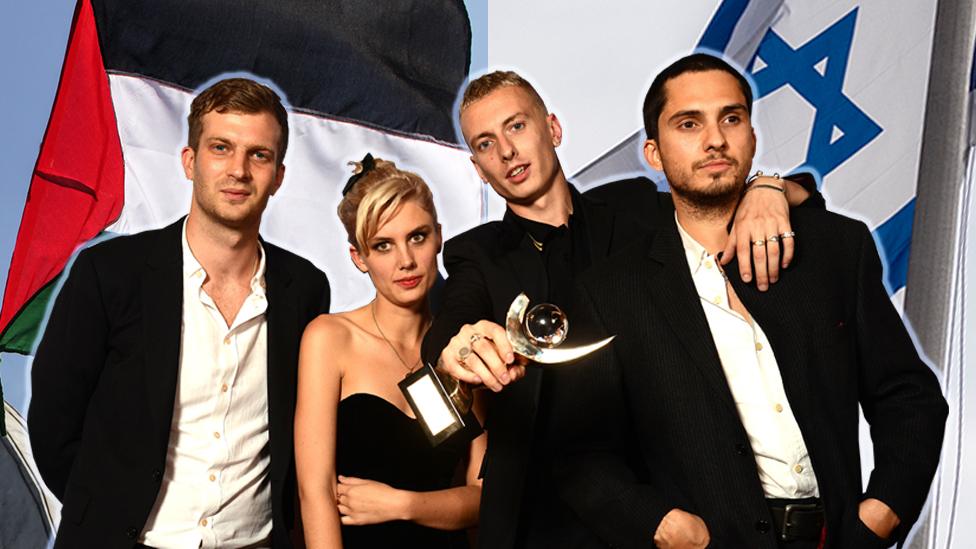Eurovision: Ireland's Sarah McTernan on postnatal depression
- Published
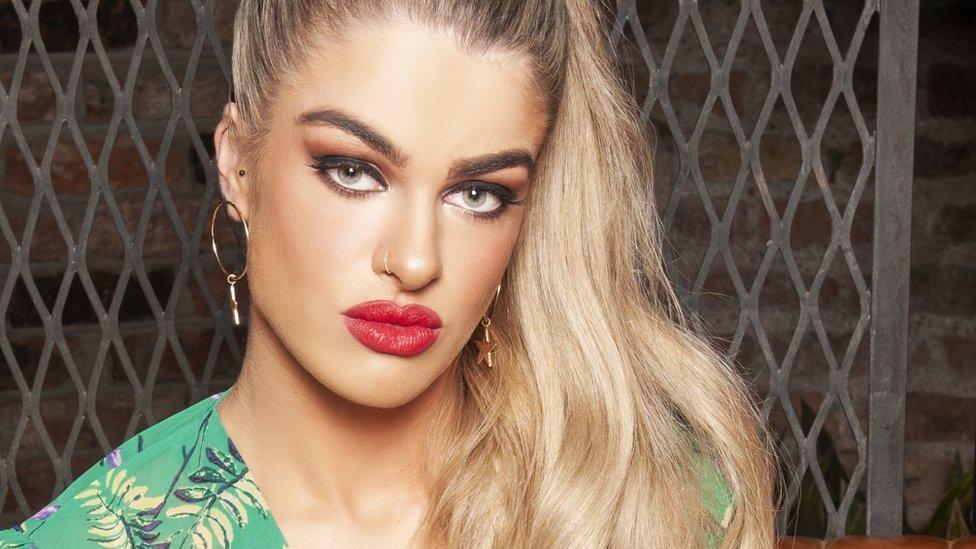
"I know I've always been afraid to say how I feel - but that's got to change."
Those lyrics from Sarah McTernan's Irish Eurovision entry are words she can relate to.
For 12 months after she gave birth to her daughter Mia - two years ago - she didn't tell anyone how she was feeling. "I didn't even notice myself slipping there - it gradually came to a place where I was at rock bottom," the 25-year-old tells Radio 1 Newsbeat.
Sarah had postnatal depression and says it took over her life.
Allow Instagram content?
This article contains content provided by Instagram. We ask for your permission before anything is loaded, as they may be using cookies and other technologies. You may want to read Meta’s Instagram cookie policy, external and privacy policy, external before accepting. To view this content choose ‘accept and continue’.

Sarah stopped singing.
She stopped socialising.
And instead she fixated on what she describes as "graphic images" in her head.
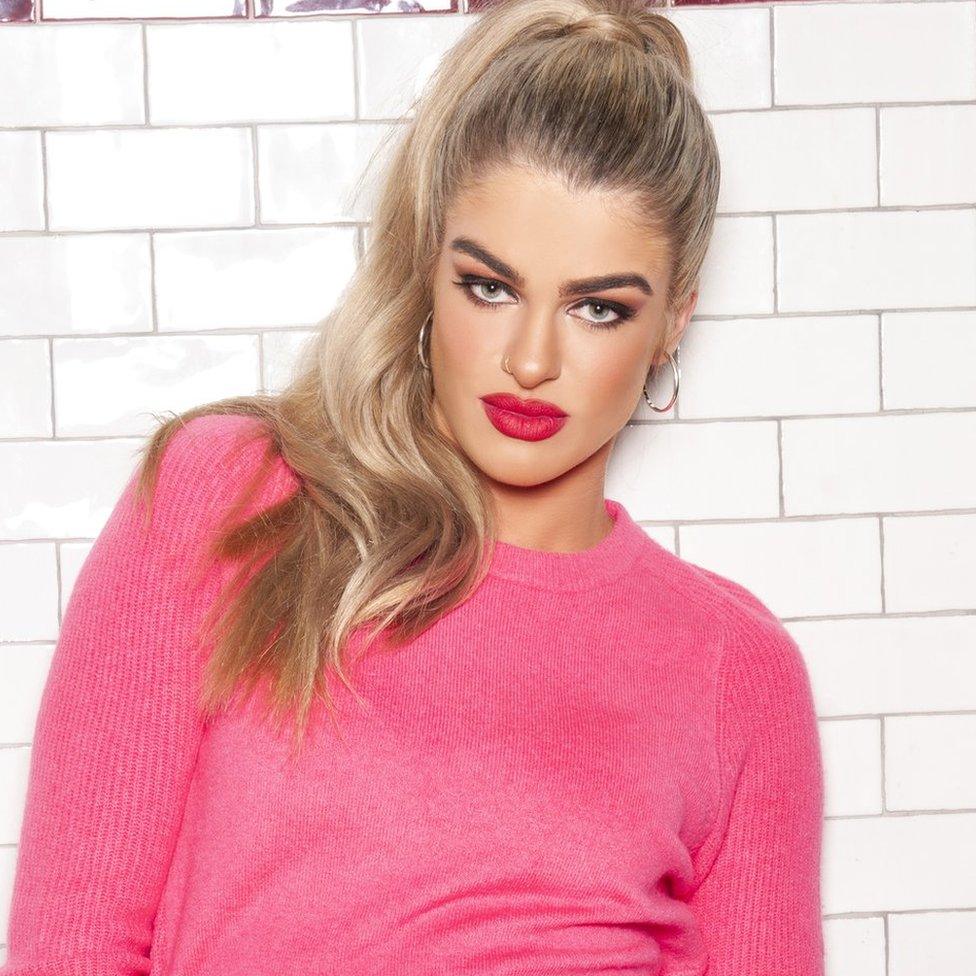
"I used to get images of my baby falling onto the ground several times repeatedly as I tried to go to sleep," Sarah remembers.
"It was something that was really traumatic because I used to have her beside me and I'd watch her rise and fall and it would make me wince."
A 2018 Public Health England study suggested women who have a baby before they are 25 are more likely than any other age group to develop postnatal depression.

What is postnatal depression?
Lots of women often feel a bit down, tearful or anxious in the first couple of weeks after giving birth.
It's often called the "baby blues", but the NHS says, external if symptoms last longer than two weeks, it could be postnatal depression.
It affects more than one in every 10 women within a year of giving birth.
Support and treatment can include self-help strategies and therapy - with most women making a full recovery.
For help and information on finding mental health support you can find links on the BBC Advice pages.

Allow YouTube content?
This article contains content provided by Google YouTube. We ask for your permission before anything is loaded, as they may be using cookies and other technologies. You may want to read Google’s cookie policy, external and privacy policy, external before accepting. To view this content choose ‘accept and continue’.
Tonight Sarah hopes to get through the semi-final of Eurovision - the world's biggest live music event - so she can represent Ireland in Saturday's final with her song 22.
There have been calls by some artists to boycott this year's event over the Israeli-Palestinian conflict, with some "Not The Eurovision" events happening.
Last year around 186m tuned in to watch Israel's Netta win with Toy. Performing in front of an audience that size is something Sarah admits she wouldn't have been able to consider 12 months ago.
Allow YouTube content?
This article contains content provided by Google YouTube. We ask for your permission before anything is loaded, as they may be using cookies and other technologies. You may want to read Google’s cookie policy, external and privacy policy, external before accepting. To view this content choose ‘accept and continue’.
Sarah wouldn't let anybody do anything for her baby - she took total control.
"Nobody was able to do anything for my child - I was so fixated on doing everything," she explains to Newsbeat.
The breaking point, she says, was when she was shopping with friends and she just felt empty.
Allow Instagram content?
This article contains content provided by Instagram. We ask for your permission before anything is loaded, as they may be using cookies and other technologies. You may want to read Meta’s Instagram cookie policy, external and privacy policy, external before accepting. To view this content choose ‘accept and continue’.

"They were laughing and joking and I actually couldn't fake it anymore," she remembers.
"I couldn't fake being happy.
"I felt that unimportant and small.
"At that point I was like: I can't pretend anymore. I can't pretend to people I'm OK when I'm not.
"It was the bursting point and I had the biggest panic attack in the car.
"I just had to admit everything."
"I'm at a really good place now but I actually think I have postnatal depression to thank for that,"
Performing in front of a hundreds of millions around the world is something Sarah never thought would happen, especially after the past two years.
But she's going to enjoy every moment of the contest.
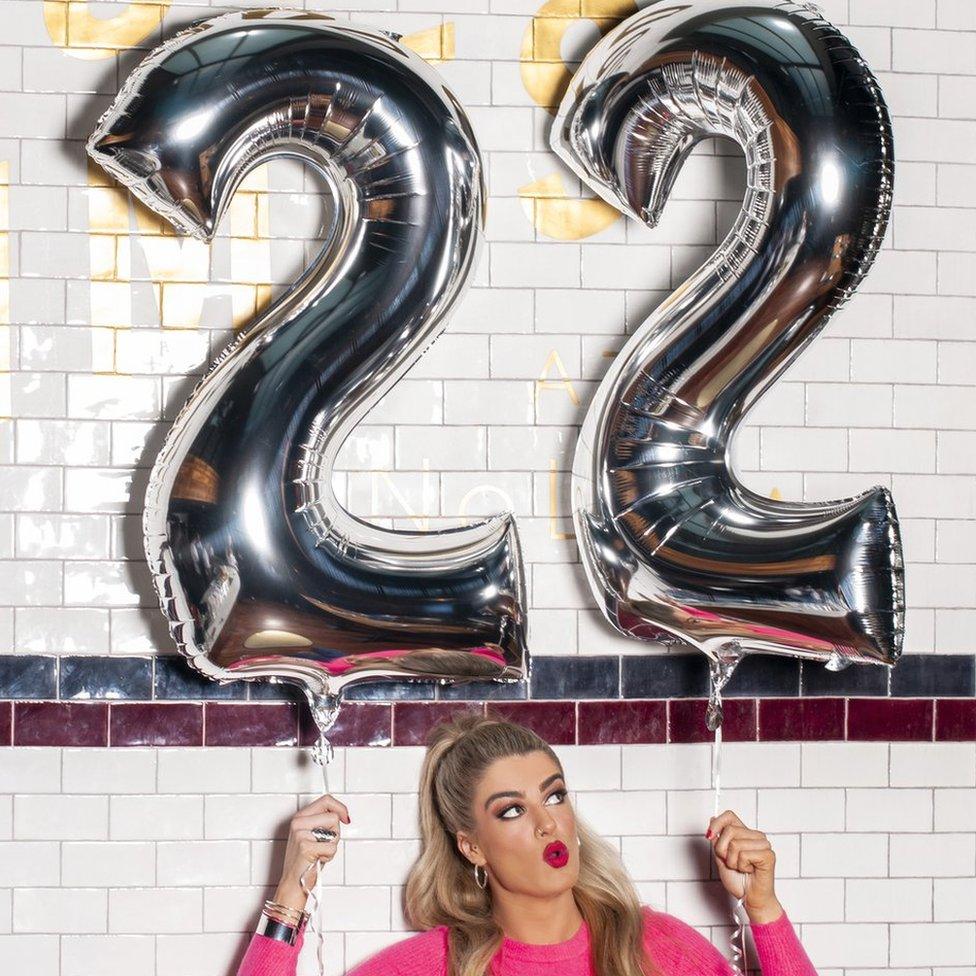
"I'm just super excited," she explains.
"When you have a daughter it gives you a new perspective and I get to make my daughter proud.
"By me fulfilling my dreams, it shows she can fulfil hers."


Follow Newsbeat on Instagram, external, Facebook, external, Twitter, external and YouTube, external.
Listen to Newsbeat live at 12:45 and 17:45 weekdays - or listen back here.
- Published12 May 2019
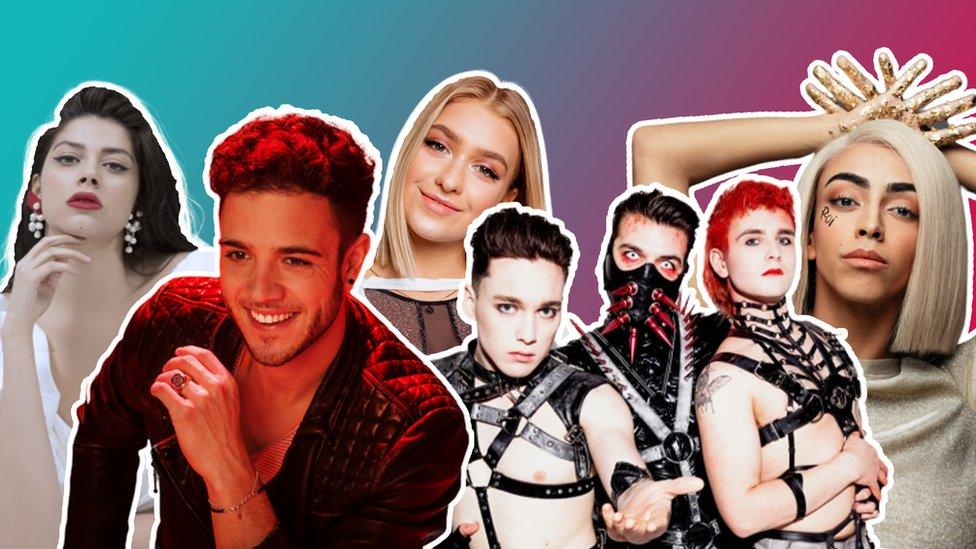
- Published15 May 2019
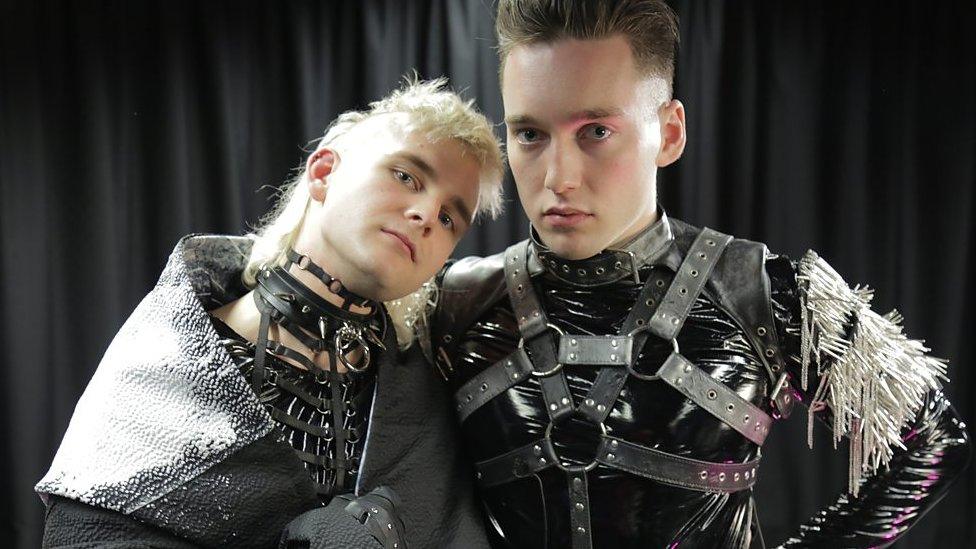
- Published15 May 2019
